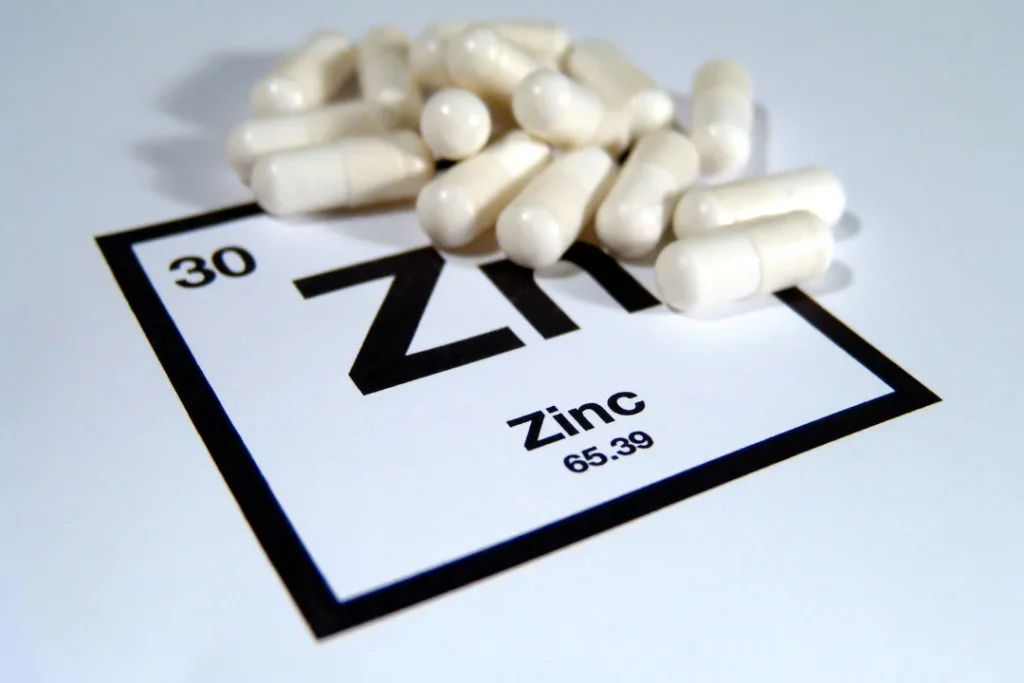Functional mushrooms are packed with nutrients and bioactive compounds, and they may support gut health with their anti-inflammatory, prebiotic, and immune-modulating properties. But how do you choose the best mushrooms for gut health?
Gut health is a crucial part of overall health. There’s evidence that an unhealthy gut can lead to a variety of health conditions, including chronic pain, mental health issues, migraines, and inflammation, among others. For this reason, many consumers are turning toward ingredients and supplements that could improve their gut health. The rise of functional mushrooms, now a $26.7 billion industry, is one example of this.
In this article, we’ll give you an overview of functional mushrooms and their various potential benefits. Afterward, we’ll discuss the five key factors to consider when choosing the best mushrooms for gut health.
You May Also Like:
5 Top Mushroom Supplement Reviews
5 Great Mushroom Supplement Reviews
5 Things to Consider When Choosing the Best Mushrooms for Gut Health is an original (HerHealthWatch) article.
What are functional mushrooms?
Functional mushrooms are mushrooms that have health benefits beyond their nutritional composition. Mushrooms offer a variety of key vitamins and minerals, including vitamin B6, potassium, and zinc. They may also help boost your immune system, lower your blood pressure, and improve gut health, among other potential benefits.
Regarding gut health specifically: Mushrooms may positively affect gut bacteria and your microbiome. There’s been research showing that consuming mushrooms can promote better stomach health and alter the ratios of gut bacteria to be healthier. Additionally, a 2017 review found that consuming mushrooms can help your body make better prebiotics, which in turn stimulates your gut microbiome. While a healthier gut microbiome can help protect your immune and digestive systems, the exact mechanisms of how mushrooms contribute to this effect are still being studied.
Overall, there is substantial evidence indicating that eating mushrooms likely has a beneficial effect on gut health.

Best mushrooms for gut health factor:
1. Mushroom type
One of the most important considerations when looking for the best mushrooms for gut health is the type and variety of the mushrooms.
There are many different varieties of mushrooms on the market, each with its unique benefits. For instance, cordyceps may boost immunity and reduce inflammation, while lion’s mane could improve digestion and brain health.
For gut health, chaga mushrooms offer some of the strongest benefits. There’s evidence that this fungus has antioxidants that could guard against inflammation in your gut. Additionally, studies on reishi mushrooms suggest that they may promote stomach health and improve your microbiome. Finally, some research shows that lion’s mane mushrooms could improve digestive health and fight inflammation.

Best mushrooms for gut health factor:
2. Beta-glucans
Another key consideration for choosing the best mushrooms for gut health is whether they contain beta-glucans.
Beta-glucans are a group of polysaccharides that are present in mushroom cell walls. Recent research has identified beta-glucans as “one of the main active components from mushrooms.” Studies have suggested that these polysaccharides could have a variety of beneficial effects, such as protecting the cardiovascular system. Beta-glucans may also serve as adjuvants for chemotherapy, helping your body fight cancer. Lastly, beta-glucans may have anti-inflammatory effects.
While the evidence is promising so far, some researchers argue that more human studies of mushroom beta-glucans (as opposed to beta-glucans from oats and barley) are needed to confirm these positive effects.

Best mushrooms for gut health factor:
3. Third-party testing
A third consideration for the best mushrooms for gut health is whether the product is third-party tested.
Third-party testing is when an organization besides the supplement company examines and tests a dietary supplement. Because supplements are largely not regulated by the FDA, third-party testing can be essential to ensuring that the product you’re getting is actually what is advertised on the label.
Best mushrooms for gut health factor:
4. Prebiotics
When choosing the best mushrooms for gut health, you should look for products that have strong prebiotic benefits.
Prebiotics are substances that help balance your microbiome to improve your health, and research suggests that mushrooms may have prebiotic benefits. A 2017 scientific review found that mushrooms can stimulate gut bacteria and improve gut health. Much of this is due to the polysaccharides in mushrooms. For this reason, you should look for mushroom products that are high in polysaccharides.
Best mushrooms for gut health factor:
5. Composition
The last factor to consider is composition. It’s vital to know what’s in the mushroom you’re purchasing.
There are a few factors to look for in the composition of the best mushrooms for gut health. First, look for whether the mushroom is made from mycelium or the whole fruiting body; mycelium-based products may have less of the beta-glucans that give mushrooms their medicinal qualities. Second, look out for fillers. Experts say that a high-quality medicinal mushroom should only have about 5% starch filler, as this will ensure you’re getting the most nutritional value. Finally, you should look for mushrooms with triterpenoid compounds and active polysaccharides.
Where to get the best mushrooms for gut health
Real Mushrooms is a standout supplement maker and provider of quality functional mushroom products.
Real Mushrooms was founded by Skye Chilton, who through his father has a long history in the mushroom business. Through this, Chilton learned that many products advertised as mushroom-based were not in fact ‘real’ mushrooms. Instead, these mushrooms were grown from mycelium, the root system of the mushroom, on a grain substrate. As Chilton describes it, the producers of these products “sell this as a mushroom product when there’s no mushrooms involved.” Real Mushrooms set out to get away from these grain-based products. Real Mushrooms’ products use pure mushrooms without fillers, with digestible nutrients and compounds being extracted using only hot water and alcohol.
When it comes to the best mushrooms for gut health, Real Mushrooms offers a few options. Real Mushrooms’ Organic Siberian Chaga Extract products are formulated to improve digestive health. Additionally, Real Mushrooms sells a mushroom blend called 5 Defenders Organic Mushroom Complex, which offers strong immune support and 200mg of beta-glucans. Both of these products are non-GMO, vegan, and certified organic.
All Real Mushrooms products are available for purchase online. You can choose from both capsule and powder forms.

Why choosing the best mushrooms for gut health matters
When trying to choose a functional mushroom product, consumers have many options. While this variety can be overwhelming at times, there are ways to choose the best mushrooms for gut health. Mushroom type, composition, and beta-glucan content, among other factors, play a role in the overall nutritional value of mushroom supplements. By looking for these factors, you can increase your likelihood of buying a functional mushroom that improves your gut health.
Further references:
Real Simple – What’s the Deal With Functional Mushrooms? Here Are 6 Types Worth Knowing About
UCLA Health – 7 health benefits of mushrooms
BBC Good Food – Top 5 health benefits of mushrooms
Important Note: The information contained in this article is for general informational purposes only, and should not be construed as health or medical advice, nor is it intended to diagnose, prevent, treat, or cure any disease or health condition. Before embarking on any diet, fitness regimen, or program of nutritional supplementation, it is advisable to consult your healthcare professional in order to determine its safety and probable efficacy in terms of your individual state of health.
Regarding Nutritional Supplements Or Other Non-Prescription Health Products: If any nutritional supplements or other non-prescription health products are mentioned in the foregoing article, any claims or statements made about them have not been evaluated by the U.S. Food and Drug Administration, and such nutritional supplements or other health products are not intended to diagnose, treat, cure, or prevent any disease.



